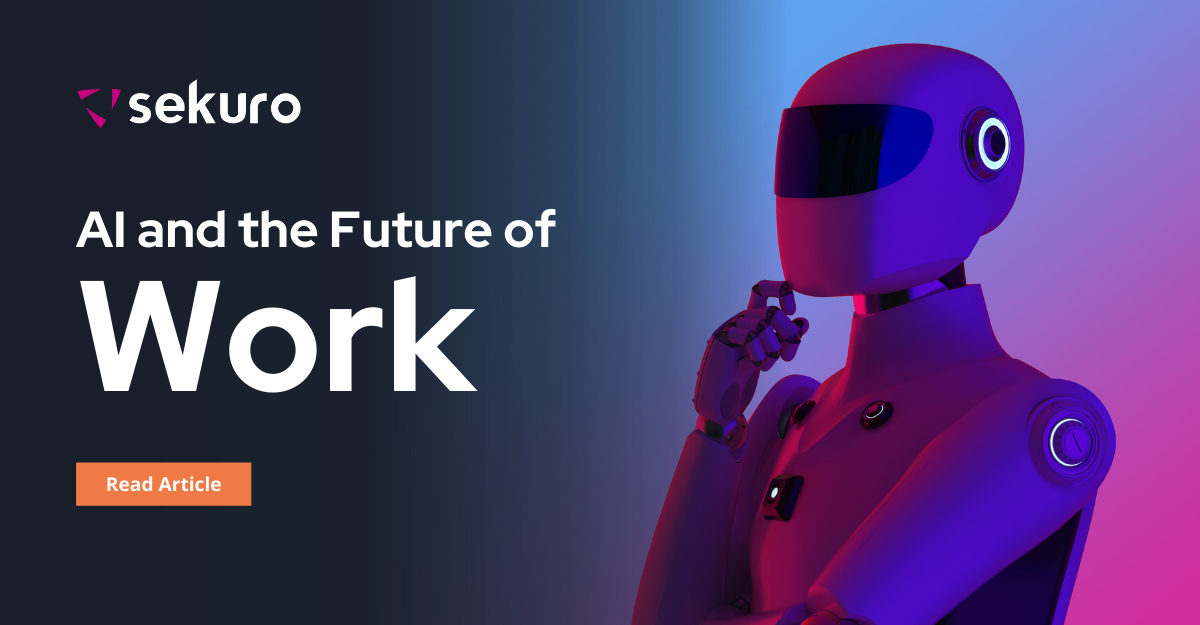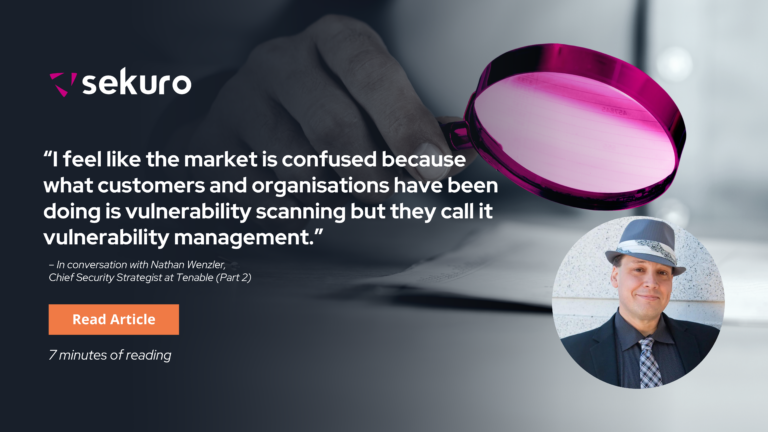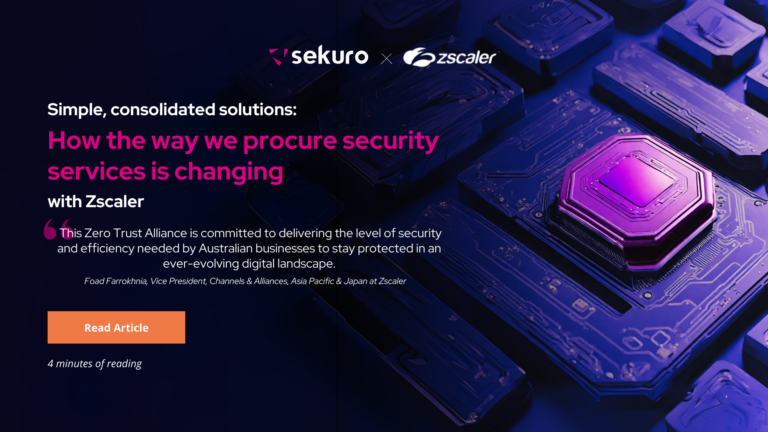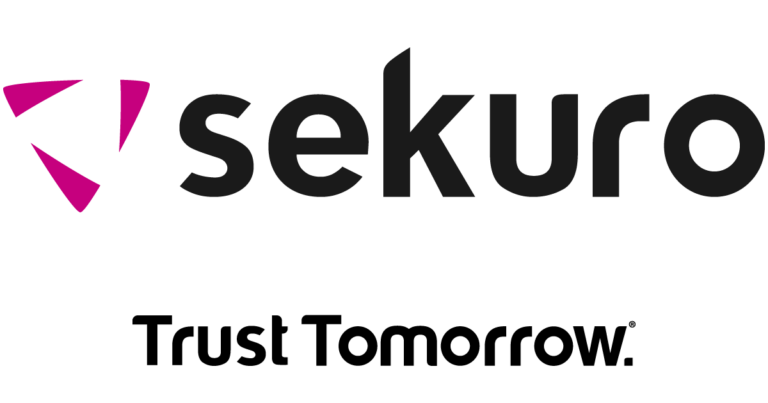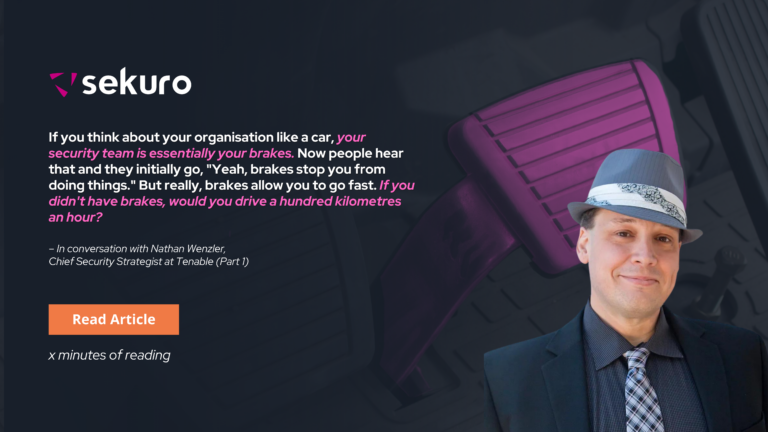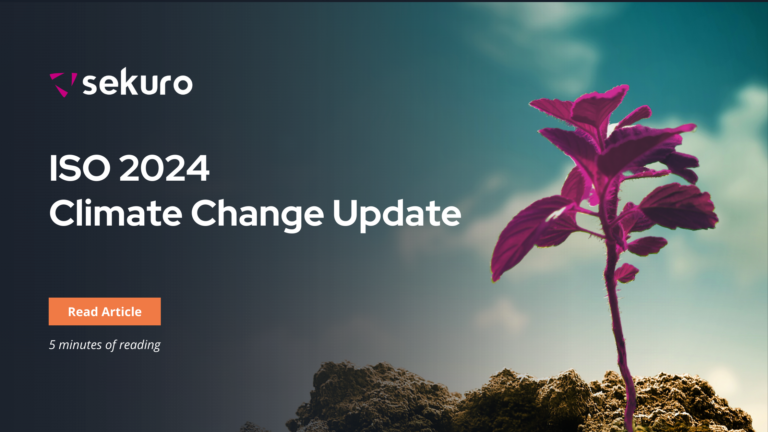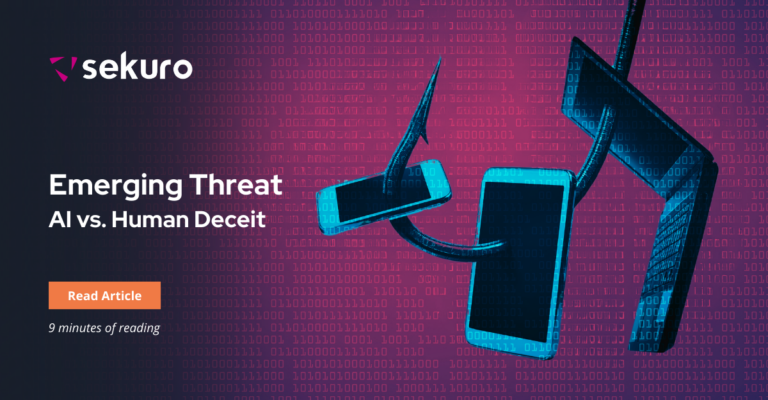Tony Campbell, Director of Research and Innovation at Sekuro explores the opportunity the AI can create and the value it may highlight on human connection.
The rise of ChatGPT has reignited the fiery discussion on whether robots will snatch our jobs. Despite the brightest of forecasts, Goldman Sachs economists warn that AI poses a threat to a staggering 300 million jobs, prompting us to question the shape of tomorrow’s work and humans’ role in society in the next 20 to 30 years. What does the future hold, and how can we prepare ourselves for the impending technological revolution?
It’s undeniable. ChatGPT’s capacity to generate articulate and accurate responses to complex queries is both impressive and unsettling, particularly if you’re unfamiliar with its inner workings. Its output is of such high quality, rivalling and even surpassing that of human experts, that it’s no surprise people are beginning to panic. With ChatGPT leading the way, it’s not difficult to envision where we’re headed in terms of AI’s impact on the job market. Does this really serve as the death knell for traditional consulting? And if it does, what does the future hold for working? What kind of jobs will be available for us fleshy bags of bones?
Cutting through the noise – let's look at the opportunity AI creates
Honestly, the rise of AI undoubtedly poses significant challenges, but it presents a host of opportunities that we need to embrace. As these systems become more advanced and widespread, new jobs and industries are sure to emerge, alongside new roles in existing industries where humans and human contact are hard to replace.
Let’s start by looking at an example of how AI might enhance a well-known and commonly engaged profession and see what the future could be like in that case. For this example of what I’m calling The Great Displacement, I’ve considered the role of the general practitioner, that bedrock gatekeep of modern medicine.
Here’s the scenario. It’s 2027. I’m going for my sixth appointment in two months. I’m rapidly losing hope. I began getting joint pain and stiffness two months ago, and now chronic fatigue has set in and I’m getting numbness and tingling in my arms and legs. Many tests later, I am at my wit’s end. Someone even suggested it’s all in my head. Luckily my friend said I should pay to try a new AI-based diagnostic centre, where the doctors use diagnostic tools that incorporates AI.
On arrival, I plug into a multitude of sensors and monitors, collecting real-time vitals, feeding that data into the model, including blood pressure, blood glucose, pulse, resting heartrate, temperature, as well as specialist inputs from ECG and EEG machines. It’s also integrating data from my medical history, notes from GP visits, hospital stays, and the rest of my family’s broader medical history. Beyond that, it also hooks into and is building a model based on myriad external data sources, such as tests undertaken by optometrists and dentists over the last 20 years, and also my vaccination records and overseas travel history, just in case there is a location-based correlation.
After three minutes of analysis, I have my diagnosis. The system said it’s 93% confident that I have a tick-bourne illness that is pre-valent in the UK. I am from the UK. England has a problem with this particular illness. As it is prevalent in Europe, the chances of my doctor diagnosing it here in Australia is practically zero. It simply never came up. Yet in my medical notes, sourced from the UK, the system saw I had a tetanus injection back then, after a tick bite. But I was never diagnosed with the disease back then, but all this falls into place. My symptoms, where I lived, the tetanus shot. Now they can run specific tests for that disease, and importantly treat me. It’s not in my head.
This shows how the AI system used its power to figure out what is wrong with me. I still want to talk to a human and discuss the implications of this disease. I want to talk to a person who can empathise and understand what I’m going through. If I can get this level of diagnostic analysis in a 10-minute GP visit in the future, this is what I want. I don’t want to have this experience without a human in the room, talking to me and working on the plan for managing the disease. In my opinion, GPs will still exist, and they will do a better job.
The importance of human contact
Even computer programmers are at risk.
Not all jobs will be this safe. Jobs where humans don’t interact with other humans may be the first to go. If a robot replaces those humans with 24×7 manufacturing systems or calculation engines, then come 2030 and the reality from a Philip K. Dick novel, what kinds of jobs will be out there?
We will undoubtedly need high-quality data sets to create these AI systems. AI trainers and data scientists will make this possible, and at least for a while, these may be job roles people take. The human aspect of working in our society, and across our communities, will become prevalent. Human contact will remain important. Creative roles and roles where humans are solving problems with creativity will be in high demand. Prompt engineering will also become a discipline, something that we learn to help us achieve the outcomes we need from these AI systems. Even computer programmers are at risk, since once the AI systems can create entire systems, not just a few lines of code, the then programmers become sophisticated prompt engineers, using creativity to solve these problems, rather than Java or Python.
Adapting to the future
Really, we have no idea what will happen in two years, let alone twenty. Everything is moving at a pace that will not stop. It’s inevitable that jobs will change, they always do. Yet our instincts as a race have served us well up to now. Adapt or die. The real question I believe is how do we, as individuals, prepare ourselves to live in a future where everything is different? Many of today’s industries, let alone specific job roles, won’t exist for our future generations. The issue we need to consider is what is AI’s equivalent of the Manhattan Project and how close are we to the first atomic test? We know the formulae and we have massive country-sized companies racing to drop the first bomb. When that happens, then what?
I guess we’ll see soon enough.
More Information
- ChatGPT Gets Its “Wolfram Superpowers”!
ChatGPT Gets Its “Wolfram Superpowers”!—Stephen Wolfram Writings - Why our future depends on creativity.
Why our future depends on creativity (creativereview.co.uk) Elon Musk calls for artificial intelligence pause.
https://abcnews.go.com/WNN/video/elon-musk-calls-artificial-intelligence-pause-98228741OpenAI Co-founder Greg Brockman on ChatGPT, DALL·E and the Impact of Generative AI
https://www.youtube.com/watch?v=YtJEfTTD_Y4&t=6s- “300 million jobs could be affected by latest wave of AI, says Goldman Sachs.”
test-wave-of-ai-says-goldman-sachs/ar-AA19dghZ
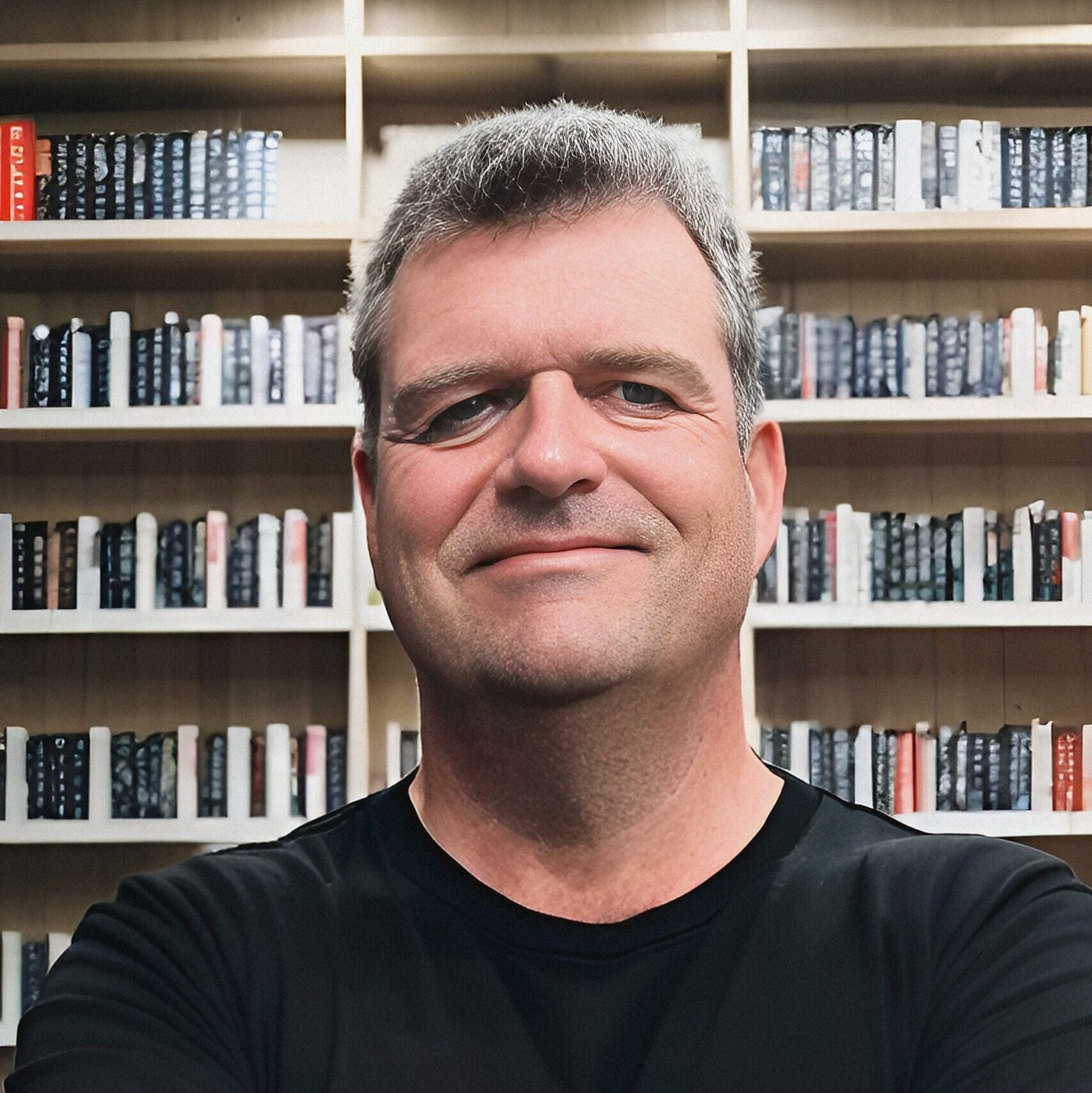
Tony Campbell
Director of Research & Innovation, Sekuro
Tony has been in information and cyber security for a very long time and delivered projects and services across a bunch of different industries through a variety of different roles. Over the years, Tony has always tried to bridge the growing skills gap through his employment, by mentoring, teaching and working with other disciplines to help them understand the complexities of what we do.

